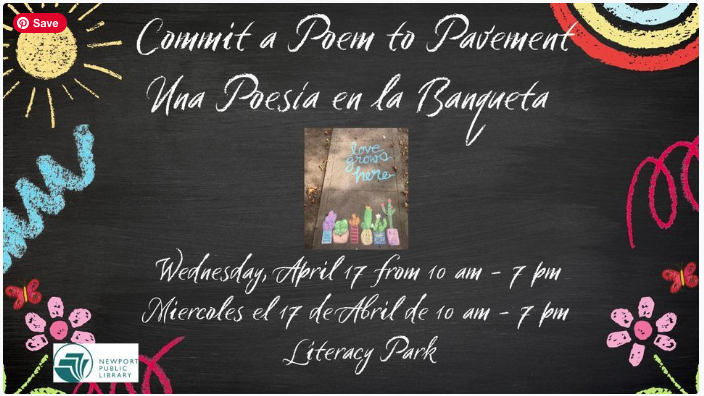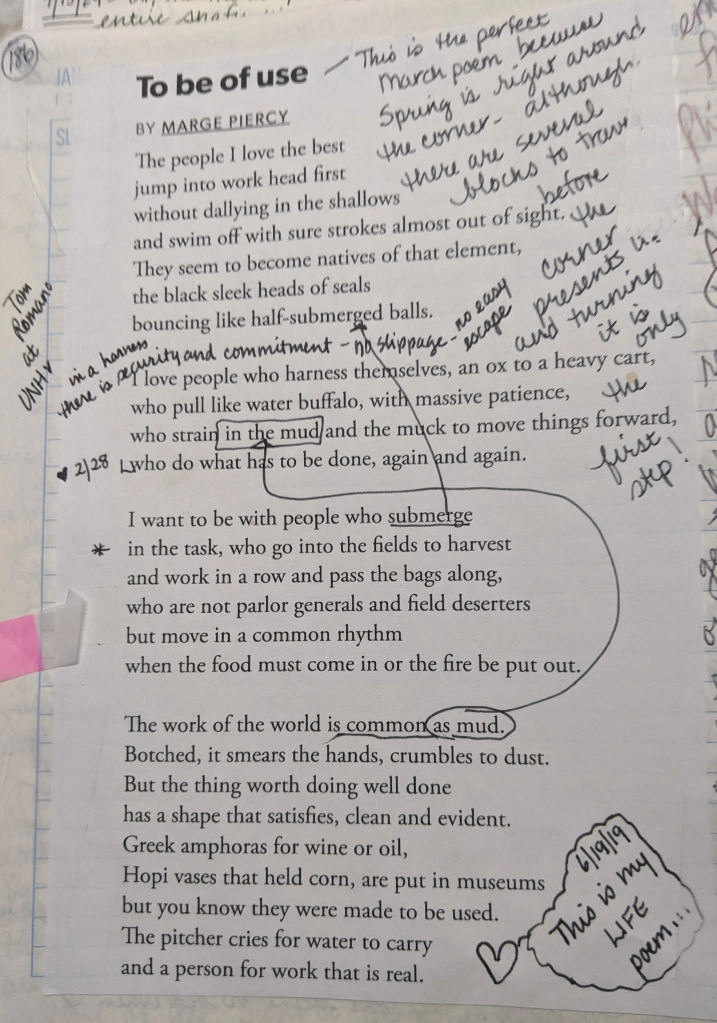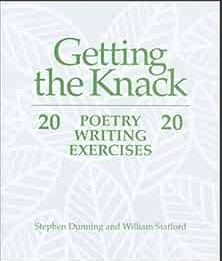
What to choose? What to choose? Tomorrow is “Commit a Poem to Pavement,” at our local Literacy Park throughout the day. Color chalk will be available and all are invited, encouraged, enjoined to scribe a line or two of a well-loved poem on the sidewalk near the library. This day-long event is one of the activities offered by the Newport Library, and adds to the month-long “poem-in-your-pocket” push. (Did you know that the official date for carrying a poem and sharing it with others is Thursday, April 18th?)
I plan to be there tomorrow. The opening question, “What to choose?” I pondered in earnest until yesterday morning. Now I have my answer, and as so often happens, it came in slant.
My son and daughter-in-love are having their celebratory “Baby-Que” this Saturday for their soon-to-be-here son, my first grand-baby, his projected arrival date of June 4th. It’s a couples celebration at the beach, emphasis on “celebration” and “beach”; the baby just gave them a joyous excuse!
I have done little to help with the ‘Que; I figure my role will (hopefully) increase a bit as babysitter in the time to come. When I offered to make an additional dessert, a back-up to the cake, I volunteered cookies. I have quite a bunch of winners to my credit, but yesterday morning the idea seized me: What about some specially designed ones? Wouldn’t that be fun?
I found a place with rave reviews online located in the town where they live, easy for them to pick up as they head to the coast. The website was professional and appealing, understated and —okay, I’ll admit it, no spelling mistakes, an important consideration for me! I filled out the contact form, realizing that I was pushing the timeframe “Cookie Hugs” laid out. Oh well, I could certainly bake cookies if they couldn’t, so why not ask?
In less than an hour, I received a call in response to my inquiry. I do love responsive businesses. There seems to be a dearth of them lately, so the cheery voice on the line was its own kind of embrace. We chatted for a bit. I acknowledged how this was a last-minute decision, that I’d totally understand if she were unable to accommodate my request.
“Oh no, Trish,” she bubbled, “I’m excited to help you with this for your kids’ party, glad to be a part of it. I just love making cookies.” Her voice carried sincere enthusiasm, matter-of-fact pride in her chosen work. We settled the details, and after I hung up, I knew the poem, and the lines to commit to pavement.
The entire poem by Marge Piercy is a longtime favorite of mine, one I have in my head and heart. Do you know, “To Be of Use“? It was added to my 2018-19 journal:

As soon as I heard Valere’s words, her passion about baking an echo of mine about teaching, about living, I knew I had my lines:
“The pitcher cries for water to carry
and a person for work that is real.”
Just the right words…










